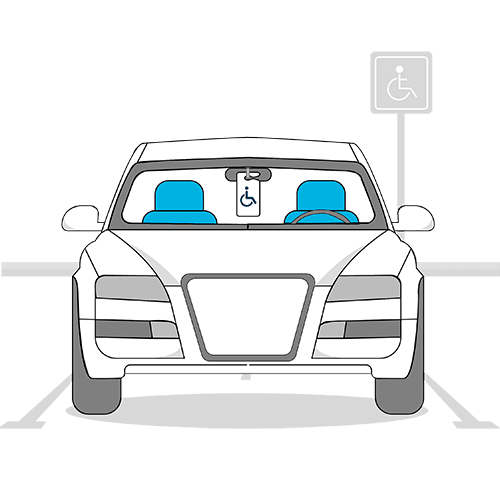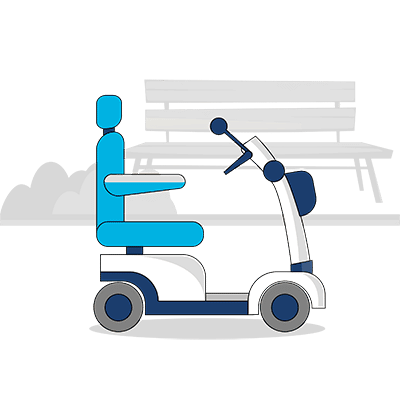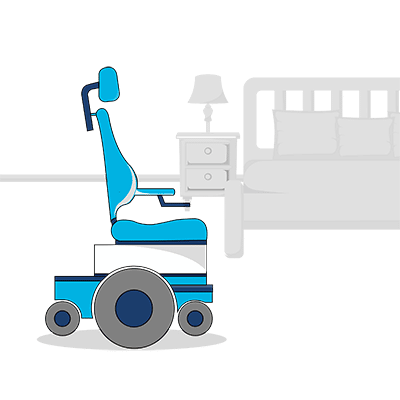Only just familiarising yourself with the NDIS? Been on a plan for ages? Either way, you’ve probably come across the phrase “reasonable and necessary supports”. But you may not quite know what this means. So, what are reasonable and necessary supports, and how does it affect NDIS participants?
What does reasonable and necessary supports mean?
The National Disability Insurance Agency (NDIA) only provides funding to NDIS program participants for what it determines are reasonable and necessary supports. Because the term is quite subjective and open to interpretation, it can cause confusion.
A reasonable and necessary support is something the NDIA sees is both fair and needed due to your disability.
How do you know if a support is reasonable and necessary?
According to the NDIS website, to be considered reasonable and necessary a support or service:
- must be related to a participant’s disability
- must not include day-to-day living costs not related to your disability support needs
- should represent value for money
- must be likely to be effective and work for the participant, and
- should take into account support given to you by other government services, your family, carers, networks and the community.”
What exactly does each of these criteria mean? Let’s break them down a little further.
Reasonable and necessary supports must be related to a participant’s disability
The first criterion for reasonable and necessary supports is that they must be directly related to the participant’s disability. This means any support you apply for should be something you need due to your disability, not something you’d simply like to have.
For instance, if your disability prevents you from cleaning your house then NDIS funding for a cleaner would likely be considered reasonable and necessary. If you are able to clean your house but don’t enjoy it so would like funding for a cleaner, this wouldn’t be considered reasonable and necessary.

Must not include day to day living costs not related to your disability support needs
Your disability probably comes with extra costs. These could be anything from mobility aids, to resources for learning and development. Or perhaps physical help is required in your everyday life. However, day to day living costs unrelated to your disability do not count as reasonable and necessary supports.
Grocery costs, for example, are part of your day to day living costs. While you might receive funding for meals to be cooked and delivered to you if you’re unable to cook for yourself, the actual cost of ingredients would not be covered by the NDIS. Why? These are day to day costs. In a case like this, any funding received would cover food prep and delivery costs as these are not day to day costs.
Further day to day costs are electricity, internet and gas. These aren’t seen as unique or specific to disability.
Should represent value for money
Value for money doesn’t always mean cheap. However, the NDIS expects that in a situation where your support needs are met by two options that are just as effective, you opt for the cheaper option.
For example, if you need an exercise bike to help manage your disability then a top of the range luxury bike with Bluetooth may not be approved. A lower budget bike which meets your exercise needs but doesn’t have unessential ‘bells and whistles’ would represent better value for money.
Must be likely to be effective and work for the participant
A reasonable and necessary support should be able to help you meet the goals in your NDIS plan. If a requested support can be linked to these goals as likely being effective in helping you achieve them then it has a greater probability of meeting this criterion.
For example, a request for piano lessons might be considered likely to be effective if one of your goals is to learn how to better regulate your emotions by pursuing creative outlets.
Read more about setting your NDIS plan goals here, and more about what happens after getting your NDIS plan here.

Factors in support given to you elsewhere
When the NDIA considers your application for funding, it takes into account other support services available to you. This criterion essentially means that you should only be able to obtain the requested support via the NDIS. The support has to be otherwise unavailable to you due to lack of finances or resources. If you apply for funding for something your family, government services or community is providing, it likely won’t be accepted. It likely won’t fall under reasonable and necessary supports.
For example, if you applied for funding for an in-home nurse to provide the same services that a parent is already providing, this wouldn’t be considered reasonable and necessary.
How does the NDIS decide whether to allocate funding?
Disability is very often not clear cut; nor sometimes are decisions made by the NDIA. Everyone’s circumstances are unique. So, it can be difficult to tell in advance whether the support you request will be granted. However, you can make use of many online resources to help understand the NDIS better.
The first thing to look at is the National Disability Insurance Scheme (NDIS) Act 2013. The criteria for reasonable and necessary supports are outlined here. The NDIA uses this to decide whether to grant the supports you’ve applied for.
You can also familiarise yourself with the NDIS operational guidelines, which are based on NDIS legislation. They explain how decisions are made and what the NDIA needs to consider. Here’s a great checklist from Community Interlink which provides insights on this. It may help you figure out whether your support request is likely to be considered reasonable and necessary.
Grow your independence with us
Alongside NDIS funding, disability equipment and mobility aids can play a pivotal role in growing your independence. It’s important to make sure they’re properly insured and protected, so you never have to be without them. Check out Blue Badge Insurance’s wide variety of specialised insurance for people with disabilities to see what we offer.
Reasonable and necessary supports – over to you
What are you finding most confusing around reasonable and necessary supports? Have you got any inside information that might help an NDIS newbie? Let us know in the comments.








